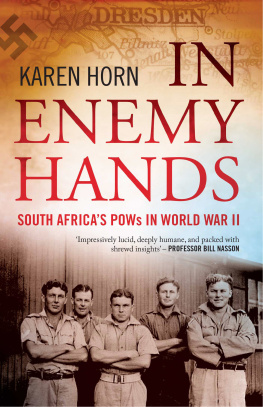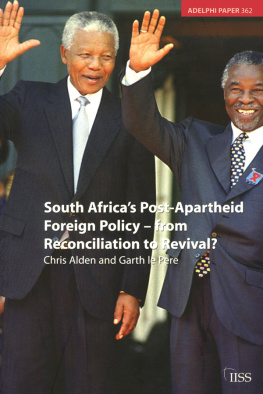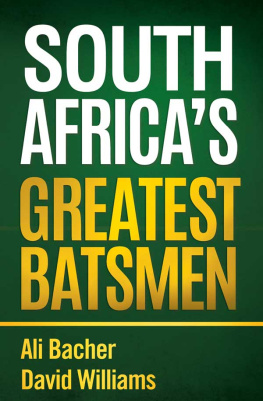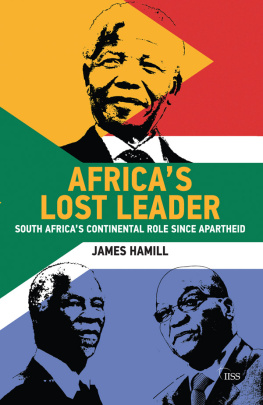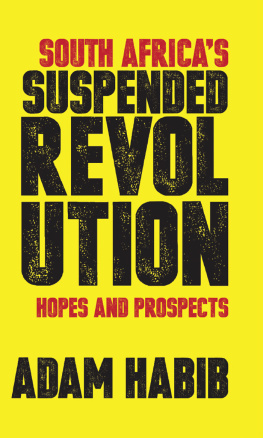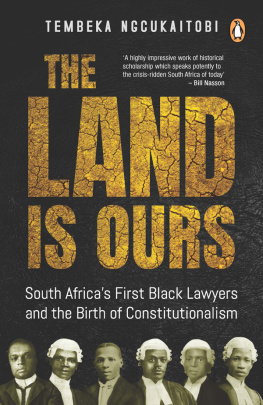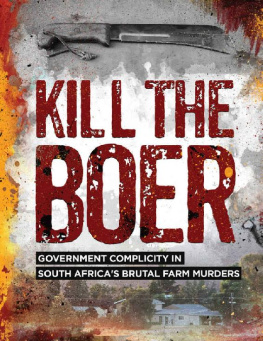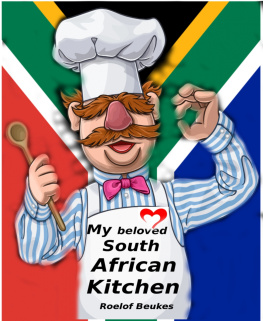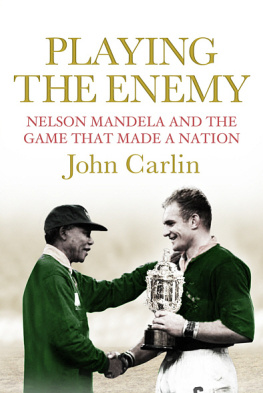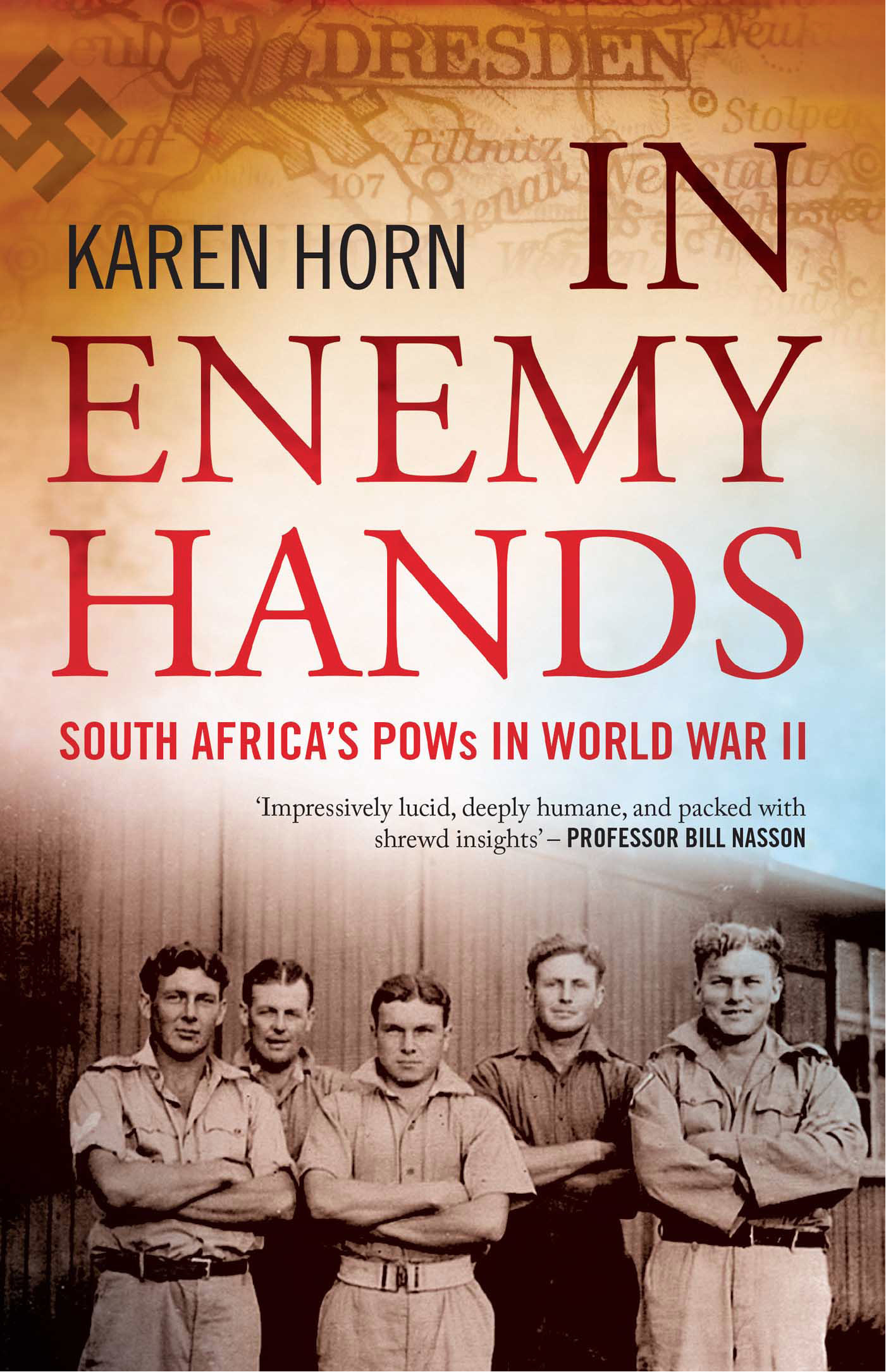Karen Horn - In Enemy Hands: South Africas POWs in World War II
Here you can read online Karen Horn - In Enemy Hands: South Africas POWs in World War II full text of the book (entire story) in english for free. Download pdf and epub, get meaning, cover and reviews about this ebook. year: 2015, publisher: Jonathan Ball Publishers, genre: History. Description of the work, (preface) as well as reviews are available. Best literature library LitArk.com created for fans of good reading and offers a wide selection of genres:
Romance novel
Science fiction
Adventure
Detective
Science
History
Home and family
Prose
Art
Politics
Computer
Non-fiction
Religion
Business
Children
Humor
Choose a favorite category and find really read worthwhile books. Enjoy immersion in the world of imagination, feel the emotions of the characters or learn something new for yourself, make an fascinating discovery.
- Book:In Enemy Hands: South Africas POWs in World War II
- Author:
- Publisher:Jonathan Ball Publishers
- Genre:
- Year:2015
- Rating:3 / 5
- Favourites:Add to favourites
- Your mark:
In Enemy Hands: South Africas POWs in World War II: summary, description and annotation
We offer to read an annotation, description, summary or preface (depends on what the author of the book "In Enemy Hands: South Africas POWs in World War II" wrote himself). If you haven't found the necessary information about the book — write in the comments, we will try to find it.
To all intents and purposes I am as sexless as a block of wood. To eat is the extreme fundamental of living. - South African POW, 1942
Books on World War II abound, yet there are remarkably few publications on South Africas role in this war, which had such an influence on how we live today. There is even less written about those who participated on the margins of the war, especially those who were physically removed from the battlefields through capture by enemy forces. South Africas prisoners of war during World War II, their experiences and recollections, are largely forgotten. That is until now. Historian Karen Horn painstakingly tracked down a number of former POWs. Together with written memoirs and archival documents, their interviews reveal rich narratives of hardship, endurance, humour, longing and self-discovery. Instead of fighting, these men adapted to another war, one which was fought on the inside of many prison camps. It was a war against hunger and deprivation, at times against ever-encroaching despondency and low morale amongst their companions in captivity.
In their interviews, all the POWs expressed surprise at being asked to share their experiences of almost 70 years earlier. The author found it astonishing that almost all of them claimed not to be heroes of any kind. Perhaps this is not surprising when one considers that they returned home in 1945 to a country which soon afterwards tried its utmost to promote national amnesia with regard to its participation in the war. With great insight and empathy, Karen Horn shines a light on a neglected corner of South African history.
Karen Horn: author's other books
Who wrote In Enemy Hands: South Africas POWs in World War II? Find out the surname, the name of the author of the book and a list of all author's works by series.

